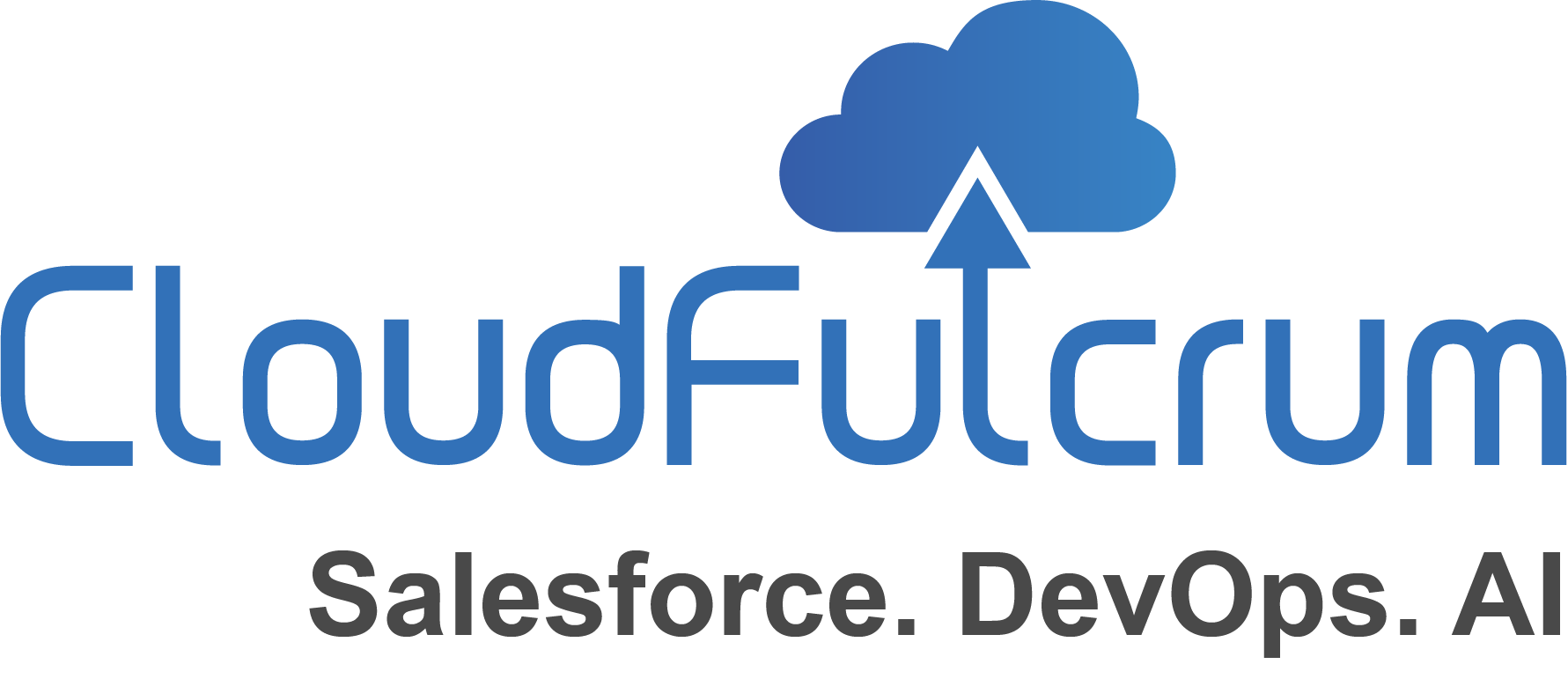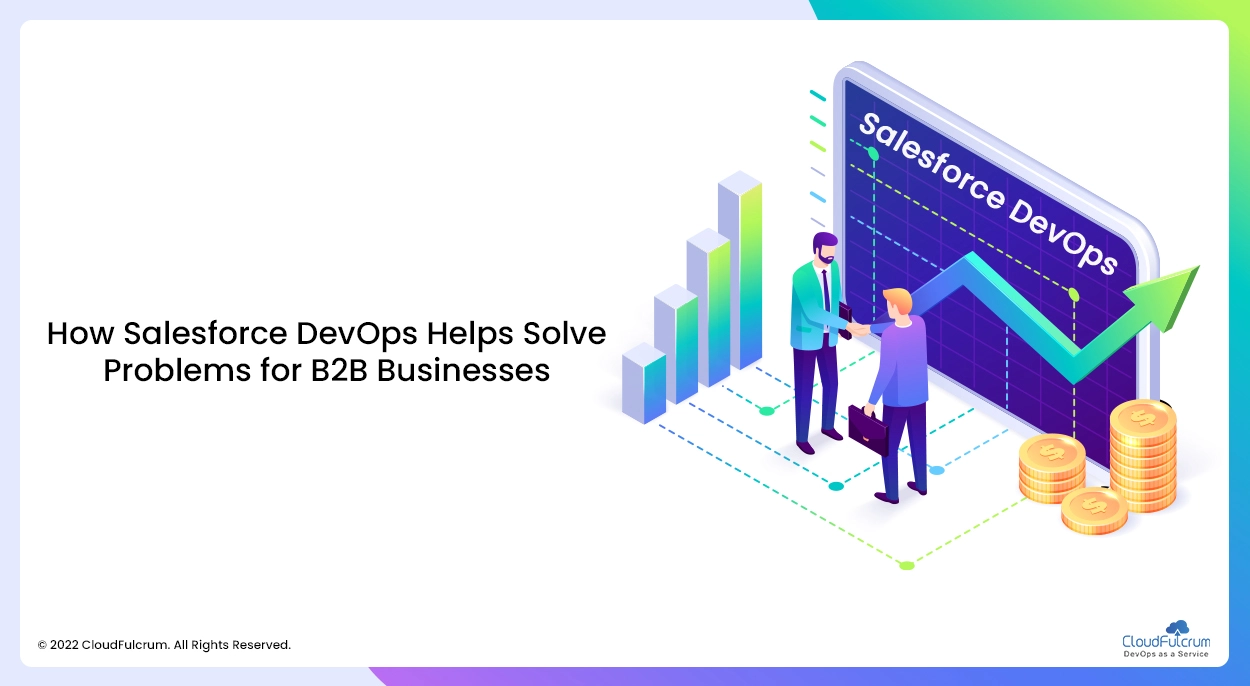Introduction
As far as technology business is concerned, things are always at full steam. It’s normal for your IT teams to be working through platform roadmaps with a lot of projects in the pipeline. Moreover, your customers are always exacting: they have requirements to be met, new features to be introduced, and it’s not unusual for them to focus every time on strategies. For a CIO, there is mounting pressure on him to deliver on your technology goals within the given budget and time.
Technology leaders are incessantly looking for ways to systematize processes and boost the business. One of the most powerful tools CIOs are now focusing on is Salesforce DevOps. Salesforce DevOps allows tech teams to not only do more, but also do it better and swifter. Teams using Salesforce DevOps are able to adapt whenever unexpected issues or requests arise and manage the increased workload without compromising on quality of work.
What is Salesforce DevOps?
Salesforce DevOps is not an established, inflexible strategy. It is the result of reducing or phasing out the conflict that arises from obsolete technology and processes. DevOps – a blend of Dev (Development) and Ops (Operations) – is a software development practice that integrates Development and IT Operations to enable Continuous Delivery of value to customers. Salesforce DevOps comprises core practices such as planning and tracking, development, build and test, delivery, and monitoring and operations.
It is usual to confuse DevOps and agile methodologies since both practices are based on improving processes. Agile refers to an iterative approach that focuses on collaboration, customer feedback, and short, swift releases. DevOps is the practice of integrating Development and Operations teams. Integrating the Development and Operations teams drives efficiencies and can improve many aspects of technology organization of the business.
How Salesforce DevOps Helps Solve Problems for B2B Businesses
Here are 4 problems Salesforce DevOps helps solve for B2B businesses.
1. Salesforce DevOps Delivers ‘Extra Value’ to Customers
The USP of every business is to deliver tangible or intangible value to customers. Salesforce DevOps is a method for tech teams to streamline technology with core business objectives. Organizations that have strong Salesforce DevOps strategies are successful not only in creating ‘added value,’ but also in delivering such value to their customers by eliminating or automating repetitive or low-value tasks. The Salesforce DevOps teams consequently gain more time, which they invest on focusing on innovation and enhancing the quality of technology. Without having to focus on low-end or low-value tasks, iterative DevOps processes encourage innovation, agility, and flexibility that take technology to the next level. Salesforce DevOps teams are able to deliver high-quality solutions to your customers swifter.
2. Salesforce DevOps Minimizes Cycle Time
When you are creating a strong Salesforce DevOps process, you are fostering agility within your Development and Operations teams. Teams gain the ability to make changes to the platform and introduce new features on the go. Since Salesforce DevOps teams are incessantly running through testing and deployment, they are able to fix bugs and patch issues as they occur, and can respond to and resolve customer needs swiftly. Cycle time can be minimized to a great extent as iteration is embedded into the process.
3. Salesforce DevOps Accelerates Time-to-Market
Akin to how Salesforce DevOps minimizes cycle time, it also accelerates the time-to-market, as it enables teams to move swifter. Salesforce DevOps is a tool for organizations that not only expedites the development process but also its ability to scale. It proves teams swift feedback on features to shorten the response time to customer requests. Salesforce DevOps accelerates the time-to-market by reducing the complexity of the development process.
4. Salesforce DevOps Fosters Continuous Improvement
At its core, Salesforce DevOps streamlines an organization’s people and resources around the same goals. When you integrate the working of your Development and Operations teams, you are able to spur new efficiencies through enhanced visibility and communication. Teams are focused on swift releases, updates, and deployment, so that any problems that occur can be fixed swifter. Salesforce DevOps creates a ‘culture of collaboration’ between Development and Operations teams.
Conclusion
Futuristic CIOs and IT leaders understand the benefits that Salesforce DevOps brings not only to their technology teams, but also to the business as a whole. Teams that take advantage of Salesforce DevOps can innovate swifter and provide ‘added value’ to their customers.
About CloudFulcrum
With its mission of “DevOps as a Service,” CloudFulcrum has been a part of multiple successful Salesforce implementations worldwide, with satisfied customers in BFSI, Healthcare, Retail, Real Estate, and Technology verticals.
With our Salesforce DevOps consulting, we help business organizations align their Digital Transformation goals to achieve higher efficiency, faster time-to-market, and better quality of software builds with early identification of potential issues, enabling continuous release of Salesforce applications.

